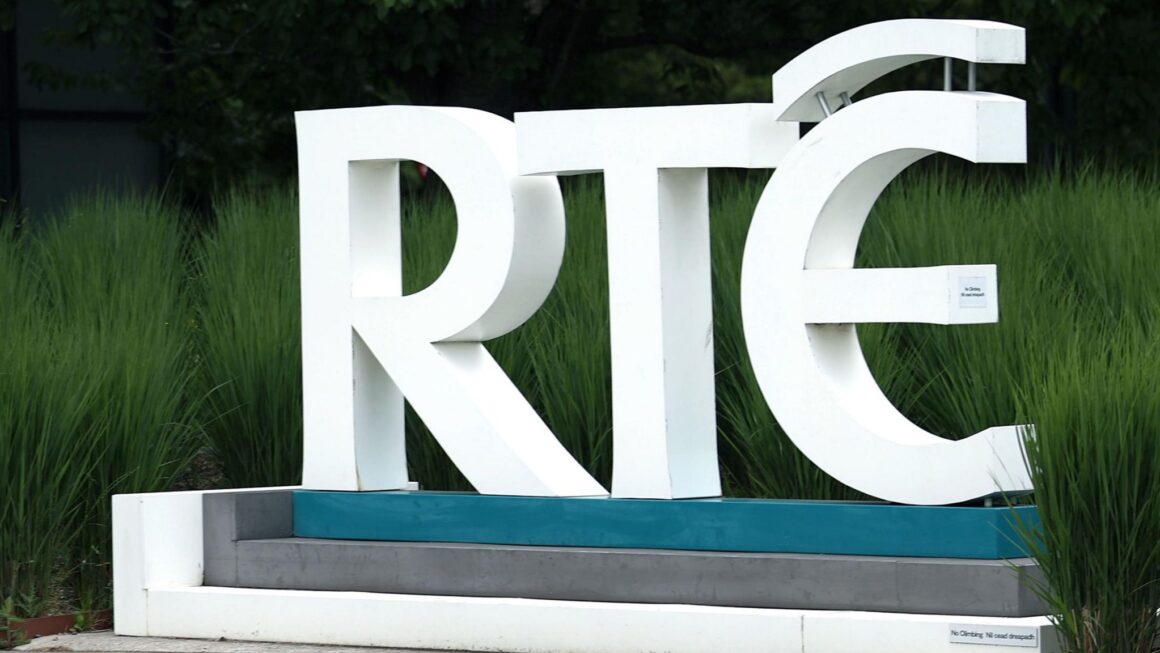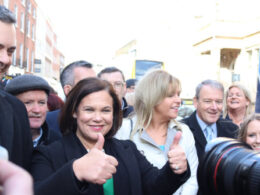By Mick Barry
€345,000 in secret payments to Ryan Tubridy…
€138,000 from the same slush fund for IRFU tickets for corporate clients…
€111,000 for Rugby World Cup tickets for corporate clients…
€26,000 for Champions League final tickets for corporate clients…
€5,000 spent on flip-flops…
The RTE scandal has lifted the lid on the culture at the “national broadcaster” and shone a light on the lifestyles of Ireland’s media and corporate elite. Like many other institutions of Irish capitalist society, it shows that this elite live a lifestyle light-years removed from the daily experiences of working-class people. They are immune from the multiple crises that impact us daily – skyrocketing rents, unaffordable homes and childcare, and soaring prices for basic foodstuffs. Linked to this is an extraordinary sense of entitlement – for them, a different set of rules apply.
Two sets of rules
While Tubridy banked the secret payments and the corporate clients had their snouts in the trough, the ordinary workers at RTE were told they had to tighten their belts because the station was in a financial crisis. They had to suffer job losses, pay cuts, precarity, bogus self-employment and much more. These workers have spoken out at mass meetings and protests laced with anger and rage.
Eloquent voices have emerged from their ranks, many of them union activists. The voice of Emma O’Kelly, the workers’ National Union of Journalists rep, has cut through particularly clearly, consistently making the case that there have been two RTEs – the RTE of top management, the “talent” and their agents on the one hand, and that of the general workforce on the other.
This scandal also shows how RTE is impacted by market pressures that are on the broadcaster. Even though only 43% (150 million) of its money comes from corporate funding, advertising and sponsorship, RTE is beholden to corporate interests – much of the lavish spending results from trying to keep these vested interests sweet.
Privatisation
“Never waste a good crisis” is a political truism by now, and the government and the Irish ruling class certainly seem to be taking it to heart here. Apart from delighting in the fact that the RTE crisis is distracting from their own failings in the run-up to the Dáil’s summer recess, the government spies an opportunity here to fasten onto public anger and ram through changes that might benefit both themselves and big business interests.
Although it is a rapidly unfolding situation, a programme of sorts is emerging from within the ranks of the political establishment. Broadly speaking, this seems to encompass the following points:
1. Split RTE in two with a commercial operation and a separate public service broadcasting operation;
2. Start channelling state funding to privately-owned corporations like Virgin Media and Newstalk that include a “public service” element;
3. Replace the licence fee with a new broadcasting charge, casting the net more widely to include every household in the state, not just those with TV sets.
While this is not yet a fully-formed programme, it’s a menu that most of the political establishment are readying themselves to dine from. These measures would create a profitable state-owned commercial media outfit potentially ripe for privatisation.
Job losses on a significant scale and the closure of regional offices could also be part of such a mix. They could also result in a smaller state-run public broadcasting outfit, possibly more vulnerable to pressure from the governments.
It is important to note that the scandalous spending, lavish pay and glad-handing with corporate interests which has taken place at RTE would be worsened by privatisation, not ended, as the management would be incentivised to seek out new corporate funding sources. Meanwhile, the wages and conditions of ordinary, rank-and-file workers would come under further threat.
Regressive licence fee
The state extracts €160 a year from every household with a television. The television licence fee is extremely regressive. Rich and poor alike are required to pay the same flat fee and there is zero allowance for any inability to pay. An apparatus of coercion is used to ensure compliance.
It is not unusual for 10,000 people to be hauled before the courts for non-payment in any given year. It is not unknown for 400 people to be jailed for non-payment over the course of a year. A little army of television licence inspectors are employed to knock on doors and chase down the fees.
It doesn’t take a rocket scientist to work out that non-payment will be higher this year, no matter the level of coercive pressure.
What kind of public broadcaster do we need?
Socialists argue for a very different approach. Firstly, we stand for a cleanout of the management team associated with this litany of failure. They should be replaced with a fresh broom that puts the ordinary RTE workers at the heart of decision-making, along with representatives of the general public, artists, documentary-makers etc.
There needs to be a system of 100% public funding. The TV licence fee should be scrapped and new funding organised based on a steeply progressive tax system. Such a system should include funding raised from new taxes on social media advertising and the profits of the “new media” tech giants.
A salary cap should be put in place along with the scrapping of the “star” system, agents etc. There should be zero state funding for media corporations owned by millionaires and billionaires. A genuine national broadcaster should have more investigative journalism, greater investment and coverage for the arts, more Irish language programming etc.
End establishment bias
This kind of new broadcasting system would end the role of RTE as a pro-establishment outfit that is totally biased regarding the interests of the Irish capitalist establishment. A similar situation exists with the BBC in the UK, given its management’s close connection with the Tories.
It may be state-owned, but this is part of a state that defends the interests of big business and the super-rich. For example, all sections of the broadcaster played a disgraceful role in their coverage of the water charges protests and generally parrotted the pro-austerity line during the years of crisis.
Democratic control over the company could ensure real scrutiny of its output and that it is not used to attack the struggles of working-class people for social justice and equality, but rather is a democratic platform for those struggles. Coverage of politics needs to go beyond the superficial intrigues of “current affairs” and look much deeper at the pro-market interests and outlook that has given rise to the housing crisis, the climate crisis, the healthcare crisis, and all the other ills of the capitalist system that RTE generally shields rather than scrutinises.












